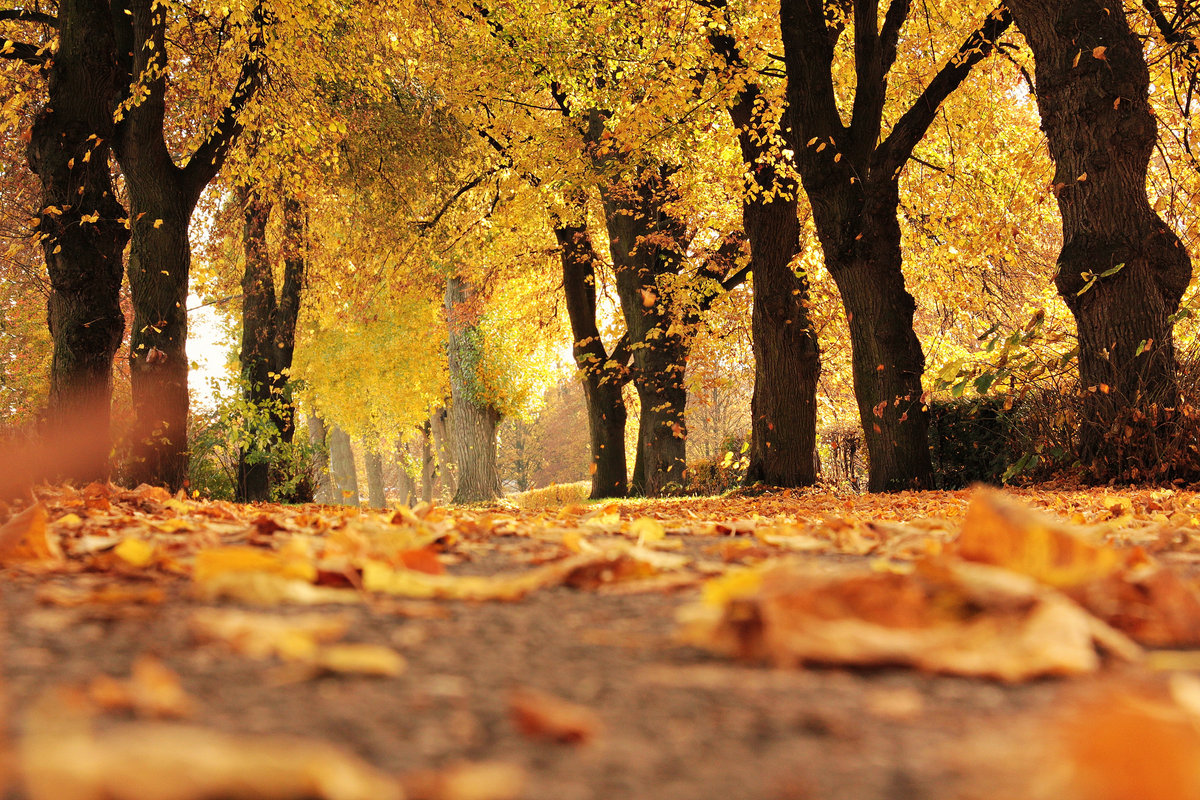Analysis: Robert Frost's 'The Road Not Taken'
In the first stanza our narrator is in 'a yellow wood'. To me this immediately brings to mind harvest, falling leaves, the deep breath before the winter plunge. It's a time to hibernate, to ponder over decisions. Of course this crossroads in the woods is one big metaphor, but, for me, making it an autumnal forest is a great choice. The narrator 'is sorry [they] could not travel both/and be one traveler'. There is the desire for adventure and experience, but it is the second part of the line that really hits home the messenger. One the hand it is physically impossible to travel both paths at once, but you can also not be 'one' if you choose two different things. Each path, each choice will affect you differently, and therefore no one person can do both. And so our narrator looks done one path for a long time, all the way to where 'it bent in the undergrowth'. 'Undergrowth' suggests something wild, but also something unkempt. Nature runs rife there, and nature is almost always a metaphor for the wild in mankind, our untamed natures.
However, the narrator moves on in the second stanza. They have contemplated the first road and now look at the second. It is 'just as fair' but perhaps has a 'better claim' to that title since it 'was grassy and wanted wear'. So seemingly this is a pleasant and smooth road, one that looks easier to travel by. The key, in my eyes, to the poem lies in the next line.
'Though as for that passing there / Had worn them really about the same.'The 'that' refers back to the 'wanted wear' from the previous line. This second road may seem more appealing and greening, but 'passing there', i.e. people passing over the road, has worn it to 'really about the same' as the first road. Bear that thought in mind because it's important!

The fourth stanza is perhaps the most famous one and the one most quoted. I had often thought of 'The Road Not Taken' as a poem that tells us our choices matter, that one decision can change everything and that hence each road taken must be contemplated. The poem seems to suggest that. And yet, ever since reading David Orr's feature on the poem in The Paris Review of Books, 'The Most Misread Poem in America', I haven't looked at it the same way. Rather than confirming us in our desire that our choices are crucial, the poem almost satirizes that desire. I feel that the fourth and final stanza shows us this.
Our narrator tells us how they 'shall be telling this with a sigh/ / somewhere ages and ages hence'. This story, of the crossroads and of the choices made, will be repeated in the far future, but the narrator shall be doing so 'with a sigh'. Gone is the excitement of making a choice, replaced now with a sense of fatigue and finality.
'Two roads diverged in a wood, and I —'There is a pause here, as if the narrator feels hesitant to go on. What did they do? And what will they say about what they did? (Do take a listen to Frost himself reading the poem below. Do you sense that hesitation as well when he reads this line?) The narrator 'took the one less traveled by, / And that has made all the difference'. That is what the narrator will be telling and yet! Please refer back to the thought I suggested you hold. Both roads were, although different in appearance, equally 'worn ... about the same'. On both 'equally lay ... leaves no step had trodden black'. So what is the true difference between these roads, apart from the fact that the first disappeared into the 'undergrowth', surely seeming more wild, while the second 'was grassy' and at first glance 'wanted wear'. Did our narrator really choose 'the one less traveled by'? Or is this what we tell ourselves at the end of the road?
The poem is not titled 'The Road Less Traveled By' but 'The Road Not Taken'. At the end of our lives, after we make choices, we don't just sit there and congratulate ourselves on all the choices we have made, do we? After every choice we make think of what might have happened had we chosen the other road. Our narrator may not be unhappy with the choice they have made, but they can't help but be curious about where 'The Road Not Taken' may have led.



Comments
Post a Comment